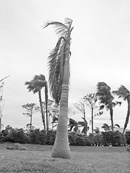All Nonfiction
- Bullying
- Books
- Academic
- Author Interviews
- Celebrity interviews
- College Articles
- College Essays
- Educator of the Year
- Heroes
- Interviews
- Memoir
- Personal Experience
- Sports
- Travel & Culture
All Opinions
- Bullying
- Current Events / Politics
- Discrimination
- Drugs / Alcohol / Smoking
- Entertainment / Celebrities
- Environment
- Love / Relationships
- Movies / Music / TV
- Pop Culture / Trends
- School / College
- Social Issues / Civics
- Spirituality / Religion
- Sports / Hobbies
All Hot Topics
- Bullying
- Community Service
- Environment
- Health
- Letters to the Editor
- Pride & Prejudice
- What Matters
- Back
Summer Guide
- Program Links
- Program Reviews
- Back
College Guide
- College Links
- College Reviews
- College Essays
- College Articles
- Back
The Twisted Idea of Normal
I have scoliosis. In case you don’t know what that means, my spine curves and twists like a winding road through the Rockies. I was diagnosed at the age of seven, but the good news is--spoiler alert--I don’t have to worry about it very much anymore.
I remember the day I found out, the confusion that ate at me; the concern in my mom’s voice was something I’d never heard before.
“Your daughter has scoliosis,” said Dr. Sundar as I sat on the table in the Toy Story themed room at the pediatrician’s office. I listened to my mom fire off questions as I stared at the Buzz Lightyear doll hanging from the ceiling, because listen was all I could do. The doctor's eyes held a hint of pity as he explained the implications in a calm voice, although I wasn’t quite sure why. Over the years I’ve grown to resent that look.
That night mom sat me down on the kitchen table, the same one I grew up coloring my favorite pictures on and learning to tie a shoe at.
“Honey, we are going to Chicago to get you a back brace,” mom said with her hands on my knees. A laugh built up in my chest because I thought she was joking. The longer I looked into her steady gaze, the more reality began to set in. This scoliosis thing was real.
A month later I had the brace, in all its hideous glory. It was an off white, four-strapped contraption that felt as though I was wearing a bunch of seat belts, at least that’s how I described it to my friends at school. When I lifted up my shirt to show them, their faces scrunched and twisted to a mixture of confusion and slight disgust. That was the first time I ever felt abnormal.
Most people would probably think the discomfort from the straps was the worst part, having to wear it for twenty grueling hours a day, or sweating in it at recess at the end of June. Don’t get me wrong, itchy fabric and velcro will never sound appealing to me, but the worst part was not knowing how to fit in my own skin. Those straps held back the parts of me that ached to fit in, trapped them inside a ribcage with a spine that wasn’t straight. I’m not quite sure what happened to those normal parts when they were in there.
Eventually the brace got an upgrade, and not the kind you get when your dad gets a new phone and gives you the old one. A hard plastic corset with stiff foam that dug into my sides had replaced the straps. Just when I thought I became unbuckled, I was caged yet again. I was older then; I knew how to deal with the looks from classmates when they saw it, the right things to say when they asked.
But finally the day came when I was set free. I remember that familiar doctor’s office, and the gigantic hospital gown that I swam in. The air smelled of antiseptic and the paper my body sat on produced an obnoxious sound whenever I moved. My mom and I sat, listening to the tick of the clock--it was just another appointment. Dr. Caird, the sweetest middle aged lady you will ever meet, made a soft knock on the door and slid in, her warmth already making my stiff muscles release with a sense of ease.
“Your x-rays are looking great,” she said with a mild tone. Her hands moved to illuminate the picture of my spine on the wall. She went on to explain the maturity in my body, that my condition would no longer affect me. “Kendall, you won’t have to wear your brace anymore.”
Her voice rang out, an echo in the room. My vision tunneled and blurred, a result of overwhelming shock and emotion. Dr. Caird exited the room, and I suddenly looked at my mom, who stood up and ran over to me. She held me in her arms and we cried, we cried because it was finally over. I could finally be normal again.
People have always said if everyone were normal then everyone would be the same. Normal is boring, unoriginal; they say it’s a bad thing. Our definition of normal grows and stretches and twists all the way through our body as though it’s written in our DNA. It doesn’t define us but rather we define it. My idea of normal changed the minute I sat in that Toy Story room for the first time, the first time I explained what my brace was, the first time I could say I was an overcomer. I wouldn’t say I would choose to wear that brace again, but when the normal parts I thought I’d lost came out of that cage, they were the most beautiful things about me.

Similar Articles
JOIN THE DISCUSSION
This article has 0 comments.

We are all a little twisted.